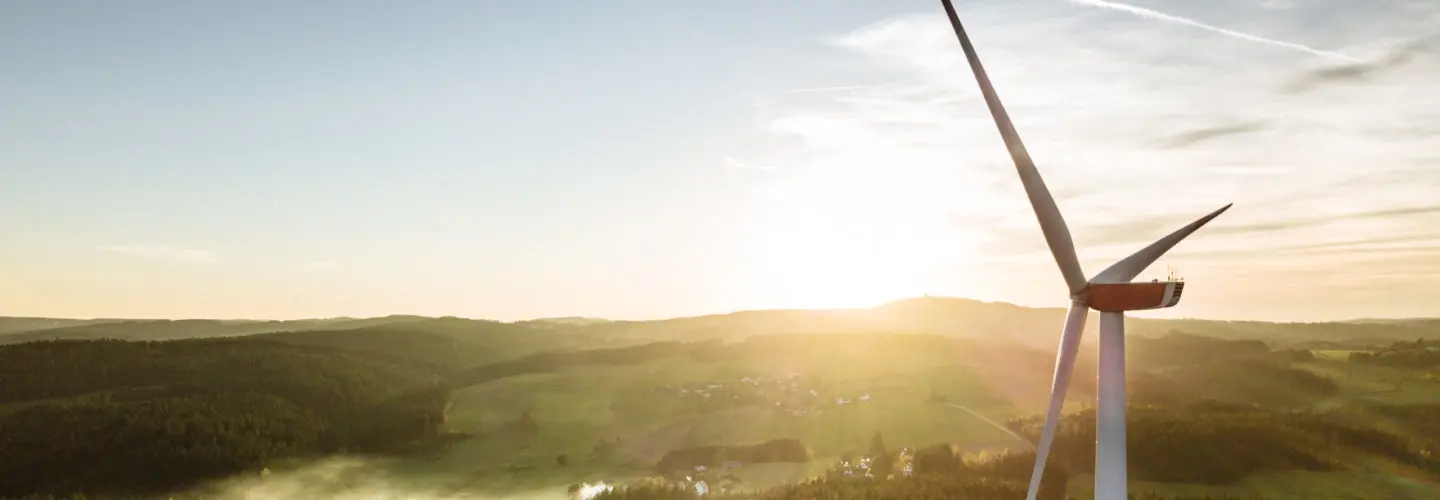Baker Administration’s Energy Bill Attempts to Harness Winds of Fortune
On October 13th, Massachusetts Governor Charlie Baker filed legislation that he hopes will provide a massive boost to clean energy in the Commonwealth. The legislation contains a number of reforms to the offshore wind procurement process, but centers primarily around the creation of a new Clean Energy Investment Fund. Located at MassCEC, this fund will be financed with $750 million in COVID-19 funds from the American Rescue Plan Act of 2021 (ARPA). The Administration hopes that this investment, the “largest investment in the clean energy economy that the Commonwealth has made to date,” will spur the development of a major industry in the state.[1] The Baker administration’s goal seems to be to repeat the success that Massachusetts has had with the life sciences industry, now with the growing clean energy sector. In 2008, then-Governor Patrick signed a $1 billion bond to fund the Massachusetts Life Sciences Center Capital Funding Programs. Thanks to that bill and repeated investments, the life sciences are one of Boston’s most successful industries.[2]
In addition to this substantial investment in clean energy, this legislation also modifies a number of provisions concerning the offshore wind procurement process, which Acadia Center considers to be largely positive. Under current state law, each new bid for long-term offshore wind contracts must be lower than the last accepted bid. Unfortunately, the first bids for offshore wind contracts came in significantly lower than expected. This has made getting each subsequent bid under the cap much more difficult, with the last round of procurement receiving only two bidders.[3] This legislation eliminates the price cap that is currently constraining the industry, which should open the field to many more bidders.
The proposed legislation also eliminates a glaring conflict of interest in the bid selection process. Under current law, the electric distribution companies (EDCs) select the winning contracts from the offshore wind developers, with no protections against the EDCs selecting a bid where they directly partnered with offshore wind developers. This legislation removes this conflict of interest by selecting the Department of Energy Resources as the final arbiter, in consultation with the EDCs. Additionally, this bill implements better flexibility for DOER in selecting a bid to give greater credit to bids that promote economic development, with a focus on diversity, equity, and inclusion; benefits to environmental justice communities; and mitigation and avoidance of detrimental environmental and socioeconomic impacts. Acadia Center welcomes these developments.
The bill is not without its deficiencies, however. Chief among Acadia Center’s concerns is the modification to remuneration from a ceiling of 2.75% to a floor of 2.5%, when it should be eliminated entirely. Under current state law, EDCs can receive up to 2.75% of the total contract price for long-term offshore wind contracts as compensation for holding the contract on its books.[4] The proposed legislation sets this payment at 2.5%.The idea when it originally passed in 2016 was that large-scale offshore wind was a brand-new industry in the United States, and the EDCs faced some uncertainty and risk under the contracts. The offshore wind industry in Massachusetts has since proven itself to be a smart investment that will pay dividends for the EDCs, even without remuneration. Remuneration for EDCs with these contracts is no longer necessary and should be eliminated completely.
The funding of the new trust fund could use improvement as well. While the infusion of $750 million will certainly help jumpstart the industry, the use of ARPA money is concerning. First, the money from ARPA is a one-time source of funding for the Commonwealth. This legislation fails to set up a recurring revenue source, and instead leaves future funding up in the air. Additionally, the money from APRA is time-limited and must be expended by December 31, 2026.[5] These factors leave the future of this new fund uncertain.
Finally, the specific purposes listed for the Fund are somewhat vague and unclear. For example, it is not currently clear if the definition of clean energy technology would include the heat pump industry for home electrification. Given that the administration’s own Clean Energy and Climate Plan calls for the installation of one million heat pumps by 2030, it would be foolish to possibly exclude the heat pump industry because of vague terminology.[6]
Overall, Acadia Center appreciates the work put into this legislation by the Baker administration. We look forward to working with them and the legislature to make this bill as strong as possible to deliver the clean energy future we all deserve.
[1] According to Governor Baker’s filing letter with the legislation: https://malegislature.gov/Bills/192/H4204
[2] See https://www.bostonglobe.com/2021/06/15/business/has-boston-become-silicon-valley-biotech/
[3] See https://commonwealthmagazine.org/energy/2-offshore-wind-developers-submit-bids/
[4] See https://commonwealthmagazine.org/energy/dpu-gives-168m-offshore-wind-bonus-to-utilities/
[5] See https://home.treasury.gov/system/files/136/SLFRPFAQ.pdf
[6] See https://www.mass.gov/doc/interim-clean-energy-and-climate-plan-for-2030-december-30-2020/download




















Follow us